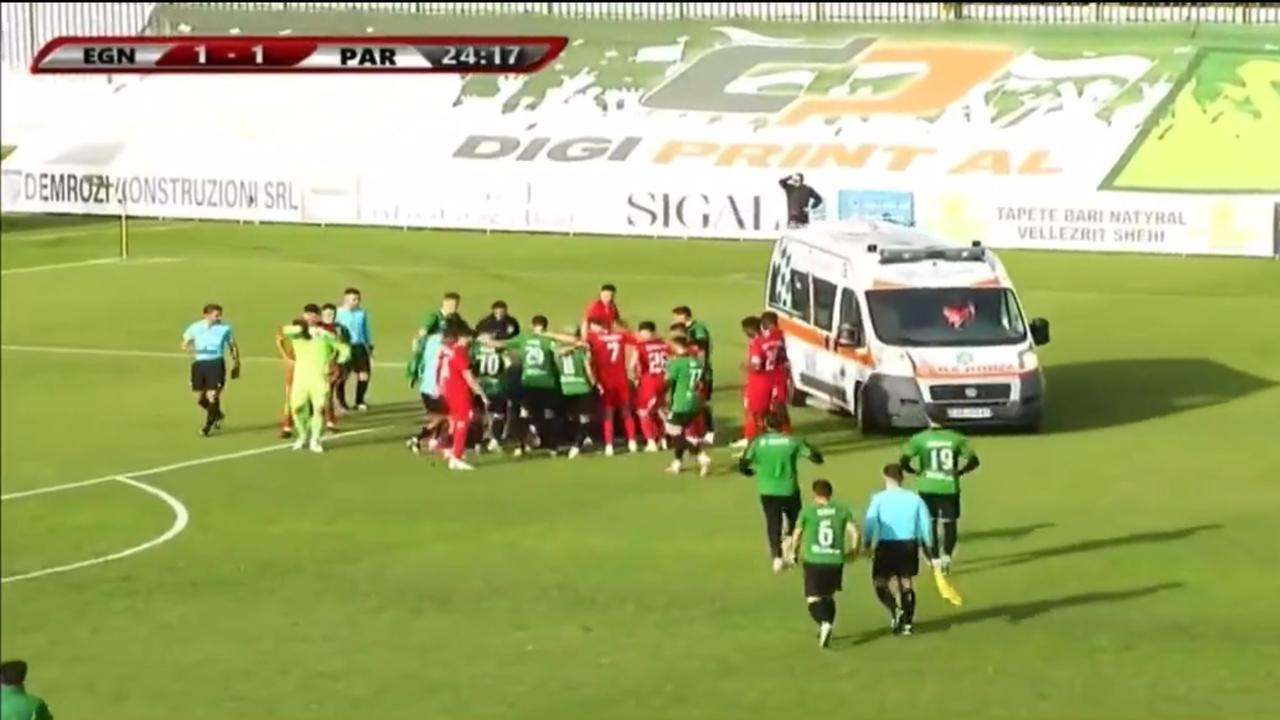Ghanaian striker Raphael Dwamena tragically passed away at the age of 28 after collapsing on the pitch during a league match in Albania. The incident occurred during a game between his team, KF Egnatia, and Partizani. Despite intervention by medical professionals, Dwamena could not be revived.

Also Read: Sri Lanka Cricket Suspended by ICC Over Governance Breach
Raphael Dwamena began his football journey as a youth player at Red Bull Salzburg, showcasing early promise that would later take him to clubs across Europe.
He played for various teams, including FC Zurich, Levante, and Real Zaragoza, leaving a mark on the Albanian league as its leading scorer with nine goals this season.
Dwamena faced challenges throughout his career, in 2017 when a proposed £14m move to Brighton collapsed due to a failed medical examination related to a heart condition.
Despite this setback, he continued to play for Levante in La Liga and experienced a loan spell with Real Zaragoza.
In 2020, Dwamena underwent heart surgery after being diagnosed with a pulmonary condition, demonstrating his determination to overcome health obstacles.
His journey took a turn in 2021 when he collapsed during a cup match in Austria but recovered and continued playing, having an automatic defibrillator implanted to monitor his heart.
The day in Albania, where Dwamena collapsed on the pitch during a crucial league match. Despite the efforts of medical professionals and immediate intervention, the Ghanaian striker could not be saved.
The match was abandoned, and the Albanian Football Federation postponed all games scheduled in the country as a mark of respect.
Also Read: Hong Kong Hosts Asia’s First Gay Games Despite Opposition
The football community, both in Ghana and internationally, has poured in condolences for Dwamena’s family, expressing deep sorrow for the loss of a talented player.
The Ghana Football Association (GFA) President, Kurt Edwin Simeon Okraku, highlighted Dwamena’s service to the country and the class he exhibited whenever he represented Ghana.
Former clubs, Levante and Real Zaragoza, also paid tributes, remembering Dwamena’s contributions to their teams. Levante acknowledged his lasting legacy in the club.
Dwamena’s death has drawn attention to his history of heart problems, which first surfaced in 2017, leading to the failed move to Brighton.
Despite calls for him to retire, Dwamena pressed on with his career, managing to play for clubs in Spain, Denmark, Switzerland, and finally in Albania.
The use of an implantable cardioverter defibrillator (ICD) became a part of Dwamena’s life, allowing medical professionals to monitor his heart during games.
The decision to continue playing with an ICD has debates around player welfare and the varying regulations across different football leagues.
Also Read: Saudi Arabia to Host 2034 FIFA World Cup as Australia Withdraws
In 2021, respected Ghanaian doctor Prince Pambo urged Dwamena to consider retirement for the sake of his health.
Dr. Pambo addressed the importance of a clean and well-prepared exit from sports, considering the challenges Dwamena faced with his heart condition.
However, Dwamena chose to continue his football journey, signing with Albanian Superliga club FK Egnatia.
His performances, with 20 goals in 28 games, had positioned the club at the top of the league table before the incident unfolded on November 11.
Raphael Dwamena’s death have reignited discussions about player welfare in football. The balance between allowing players with ICDs to continue their careers and ensuring their health and safety remains a challenging aspect for football governing bodies.
Dwamena’s story prompts a closer examination of the protocols in place and the need for individualized assessments to safeguard players with health conditions.
Raphael Dwamena’s legacy will endure through the memories of his contributions on the pitch. Clubs like Levante and Zaragoza expressed their grief, addressing that he would always be remembered by their fans.
Also Read: Ballon d’Or Awards: Lionel Messi Wins for 8th Time and More























